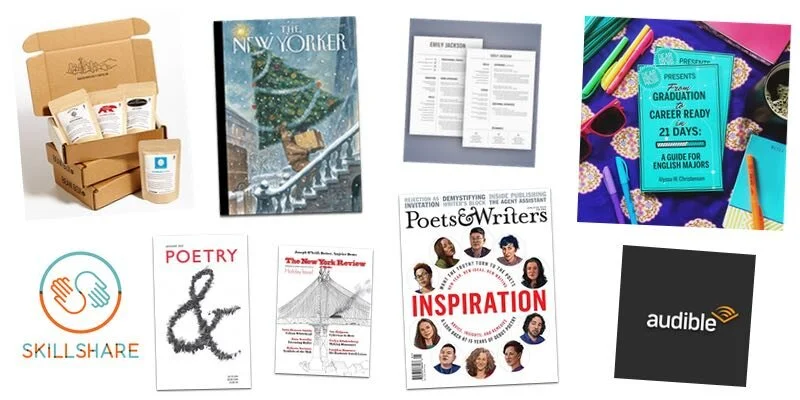My name is Sabrina Hardy, and I graduated with a BA and an MA in English from Liberty University in Lynchburg, Virginia. Whatever I do, wherever I go, I’m always looking for new opportunities to hone my writing skills. This summer, one such opportunity presented itself in a very unexpected manner: a technical internship.
When you graduate with a Master’s degree in English, you generally don’t think about interning or working in a technical field, unless you took some specific courses on technical writing. I never took those classes, so when I interviewed for a writing internship with e-360 Technologies, an electronics reuse company in Pittsburgh, Pennsylvania, I was excited but also understandably nervous when I was actually offered the position. I knew it would be a lot of work and research, but I don’t think I was quite prepared for how much I would have to learn for a field I knew little-to-nothing about.
As it turns out, the research, writing, and editing skills I gained through five years of English classes gave me an excellent foundation for the writing I was assigned in this internship! It was three months of challenging and rewarding work, and I’d like to share my experience with you, along with some application for those of you who are looking into technical internships or are wary about doing so!
Interning in a Technical Field Will Definitely Require Research
As English majors, we’re used to research-intensive projects. Most of us thrive on those late night library and database research sessions, and we wield our newfound knowledge as if we were born knowing all of it. It certainly came in handy for me this time, as the research was the most difficult part of my work.
e360 Technologies works with local businesses and individual clients, taking their used and out-of-date electronics, like computers and cellphones, and refurbishing them for re-release into the market or, if the piece of tech is past the point of no return, they recycle the various electrical components in an environmentally-conscious way. I didn’t know anything about any of that at the time, so when I started work, I had a lot to learn.
My research involved learning the technical terms for the business’s areas of expertise, figuring out the negative environmental impacts of merely throwing away electronics instead of reusing and recycling, the process of building a computer, what minerals and elements go into all the various components of a PC, which sites are going to give me government facts, which sources are best for local news, and pretty much everything you can think of when it comes to this kind of business. Each new project every week meant starting from scratch on my research, so I now have a veritable library of sources on the subject.
- My takeaway advice? Build your knowledge base right away. Find out exactly what the company you’ll be interning for does. Go through the website, do some research into that kind of business, and compile a list of basic terms and concepts you need to know. Research all of the above, take notes, and save the file before you even start working. It’ll help you feel less lost and will also give you a great starting point for each assignment. Every day that I didn’t have an assignment to work on, I was researching possible terminology, government websites, pollution data, and everything else that could possibly relate to my work. (Anyone want to know how many minerals go into the making of a computer? Anyone?)
Your Writing Skills Are Absolutely Necessary
We few, we happy few, we band of English majors are no strangers to the art of writing. Most of us join English programs either because we’re already really good at writing or we want to become stellar at it. And really, any job that lets us keep writing is one we tend to jump at. Writing in a technical field, at least in this case, is actually right up my alley. Once I had the terminology and statistical know-how from my research, the actual writing didn’t take long at all.
I’ve written a press release for the company, blog posts about pollution and depreciation, emails to clients, and several other written assignments for the company. I start each one with an outline, write multiple drafts, use the vast array of witty words and intelligent phrases at my disposal, and demonstrate my generally impeccable grammar. Writing the kind of articles expected from me in this field uses all the same talents I already have; it just exercises some slightly different creative muscles within those groups.
- My takeaway advice? You can apply the same skills you learned from writing essays to “real world” writing assignments. Follow the same process you would for writing a paper on the Marxist ramifications of class distinctions in The Iliad, or whatever it was you wrote last term. Keep a clear outline in your head, have a strong thesis statement (even if it’s not one you need to write down), define your terms, and support every claim you make. You’ll have to simplify and perhaps cut down on your natural verbosity, but your well-honed writing talents will help you excel in these assignments.
So, What’s Next?
If you’re interested in an internship of this kind, what do you need to do? Well, the primary focus is the writing, so make sure you have a diversity of skills. I’ve written two theses and who knows how many academic papers, but I also write creatively, publish with some online contemporary issues magazines, and regularly contribute to a blog. The more variety you have in your writing, the better your resume will be and the easier time you’ll have of adapting to the requirements of the job.
Also, familiarize yourself in advance with the company you want to intern for and do some pre-interview research. Is it the kind of work you’d need an actual class for? Or is it something you can research and learn on the job?
But above all, be confident. You’re an English major: you can write, you can research, you’ve got this.
About the Author
Sabrina Hardy is a swing-dancing, book-loving nerd of a teacher from Tucson, Arizona. She taught writing at the collegiate level for two years at Liberty University and is currently preparing to move to Poznań, Poland, to take up a position as an English language instructor. Beyond her academic publications, she’s written for Christianity Today’s Her.meneutics and Today’s Christian Woman in addition to working on a novel and regularly blogging for The Art of Writing and her personal travel blog, My Kingdom for a TARDIS.






































































































